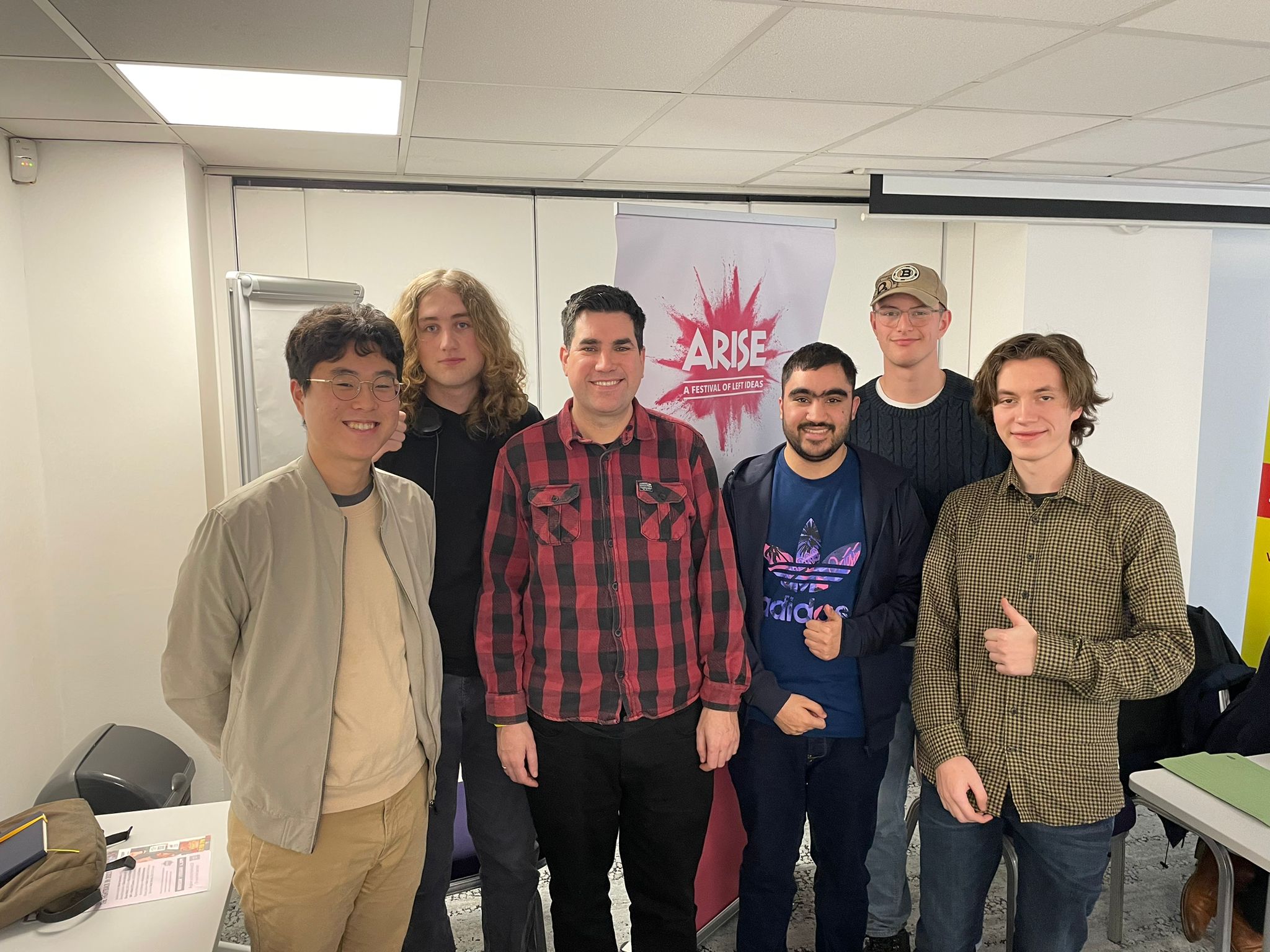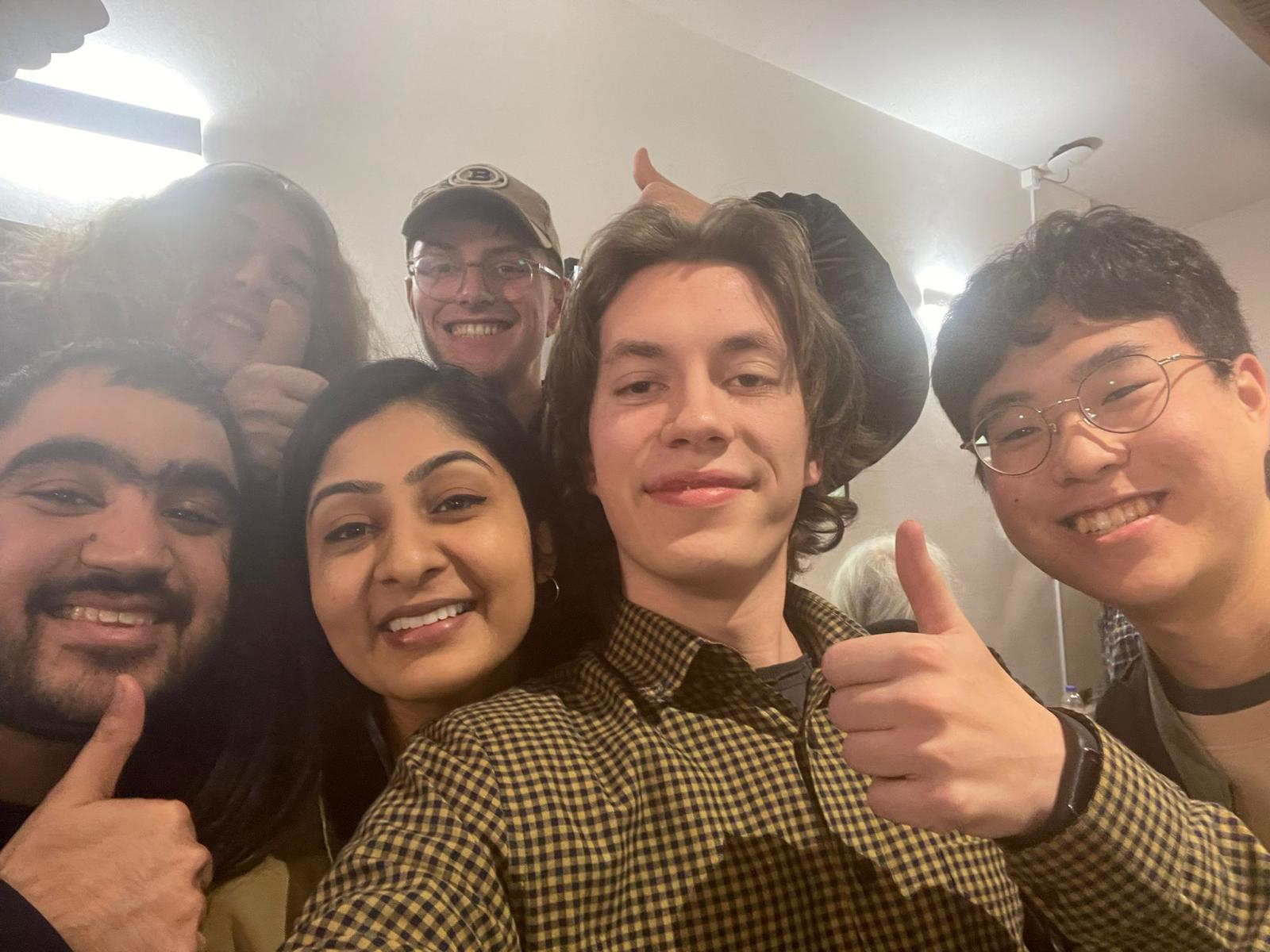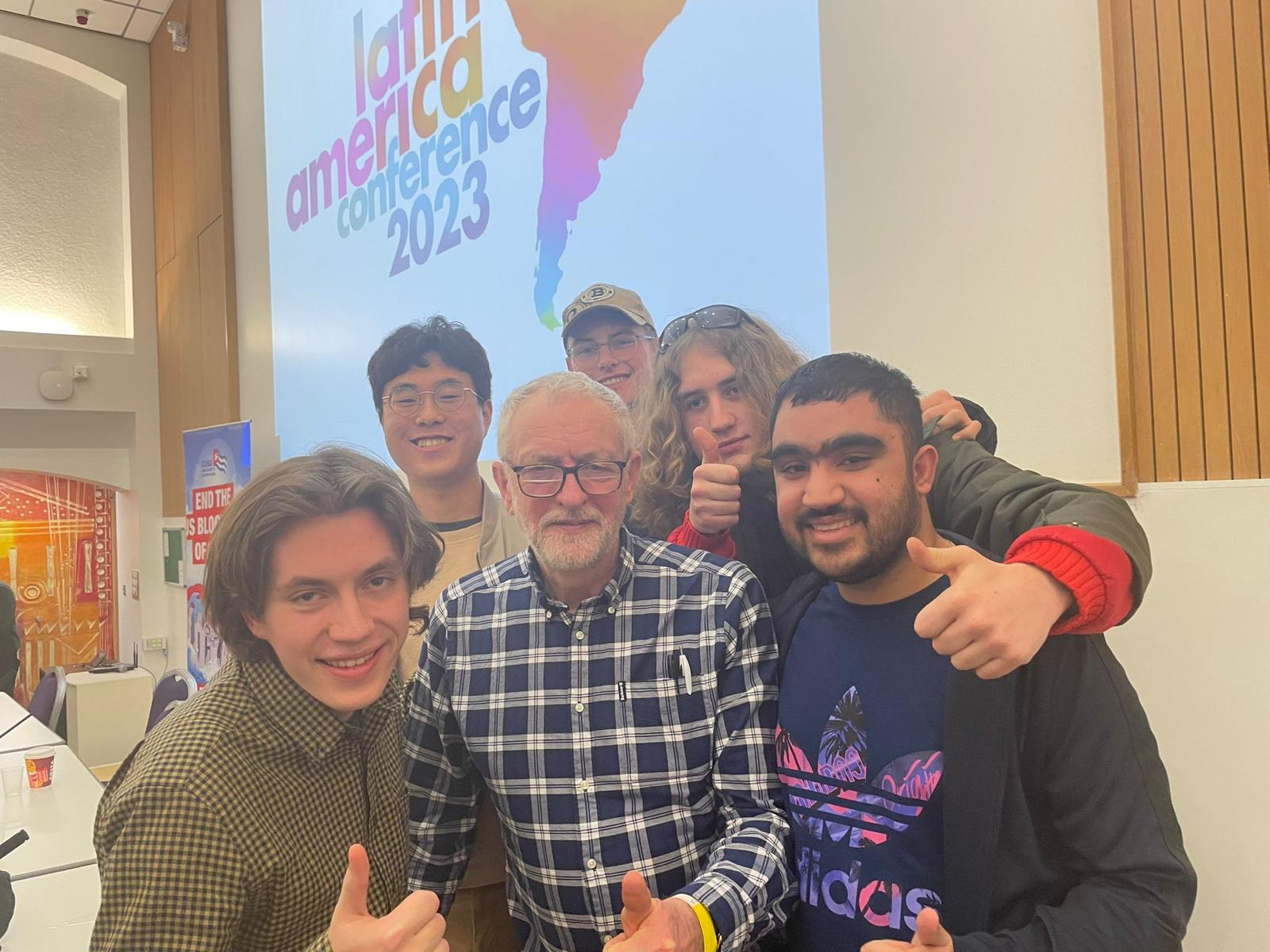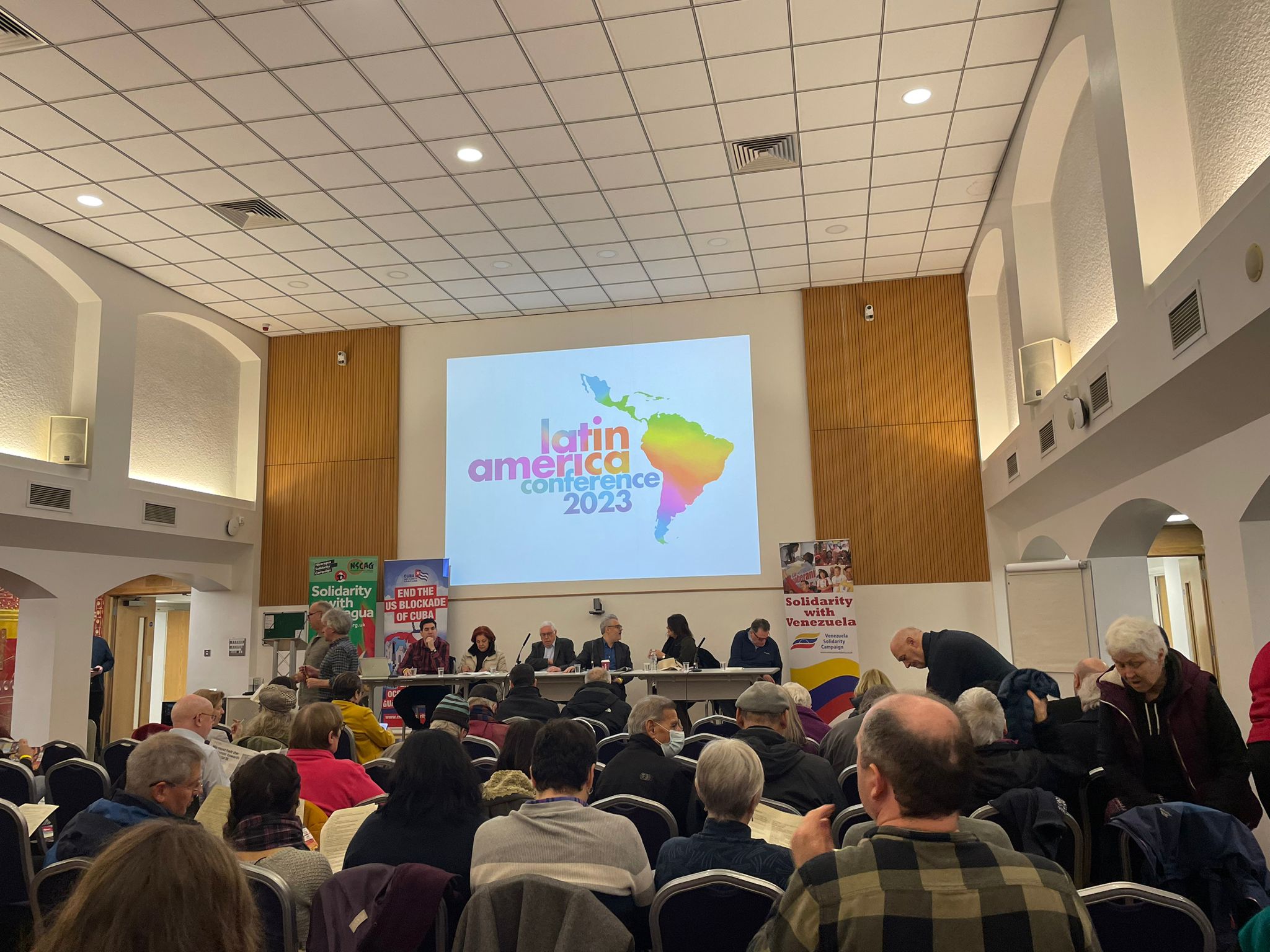On January 27th, I attended the Latin America conference in London, along with four other members of Kent Labour Student Society. Hosted annually by Labour friends of progressive Latin America, as well as the British Solidarity Campaigns for Venezuela, Cuba, and Nicaragua, the event brought together a wide range of politicians, journalists, academics, activists, social movement leaders and even ambassadors of the aforementioned countries.
As we arrived at Hamilton House, where the event was hosted, we were greeted by stalls, selling shirts emblazoned with “Lula livre” (free Lula) or Che Guevara, Venezuelan chocolate and Nicaraguan coffee.
The mood was lively as we gathered in a large hall to hear the opening plenary, which introduced us to the event. We also heard from Richard Burgon MP about his experience in being involved in progressive Latin American politics, such as setting up the Brazil solidarity initiative in parliament.

The majority of the day was spent in seminars. These involved a panel of experts, during which they would talk about their area of expertise, and the last twenty minutes consisted of a Q&A session. There were over twenty of these seminars throughout the day, but we were only able to attend three each due to time constraints. During these, we learned about President AMLO of Mexico’s plans to build a railway in the Yucatán peninsula, opposition to this plan, and why the president’s critics are mistaken.
Others learned about the situation in Venezuela, in which a particular emphasis was placed on the effect of western sanctions on that country, that although the west portrays these sanctions as well-meaning measures against a dictatorship, in reality- they are in place to “starve out” the population into overthrowing the Maduro government. Blame was also placed on the UK government, for hoarding $2.5 billion of Venezuelan gold. At a time when the people of that country are experiencing great hardship, this decision is reprehensible.
Another highlight was a seminar on the Colombian peace process, in which Sinn Fein MP Paul Maskey recounted his involvement in the Justice for Colombia project, a UK and Irish organisation aimed at ending the ongoing civil conflict in Colombia, which has claimed the lives of almost half a million people. At the end of this seminar, a video message was played from the Colombian senator Maria Jose Pizarro, who thanked us for our solidarity, and assured us that the Colombian government, led by president Gustavo Petro of the Pacto Historico party, was committed to peace.
‘The mood was cautious, but there was also a feeling of great optimism.’
Lastly, every KLS member gathered to attend a Brazil seminar. The panel was comprised of Richard Burgon, Nathalia Urban, a journalist for Brazilwire, Mariela Kohon from the International Committee of the Trade Union Congress, and Rodrigo Toneto, a Brazilian student studying in London and a member of Lula’s party. The panel was enlightening. Richard and Mariela spoke of the importance of showing solidarity with Lula’s government and how they must ensure nominally progressive politicians in the west must stand up for governments that are at risk from the far-right. Nathalia and Rodrigo gave important insights on Brazilian politics, not often reported on in the west, with Nathalia saying “there was an article that came out saying ‘Brazilian markets fall after Lula vows to end poverty’ Well F*** the markets!”, and Rodrigo stressing the religious foundations of the PT party. KLS members asked questions, including whether PT had repaired trust with voters after the Lava Jato protests in 2016, about politics in the Brazilian football team as most players endorsed Lula’s far-right opponent Bolsonaro, and the future of PT for the next election in 2026.
The conference concluded with a closing panel. Though leftist parties had won elections in Chile, Colombia, Honduras and Brazil (comprising almost half of the population of the region!) since the last Latin America conference in 2021, the mood was very cautious. For any progressive interested in Latin America, the first thing you will learn about will be Operation Condor, a US-backed program of installing dictators in Latin American countries that led to the deaths of a suspected 80,000 people. Progressives will also have in mind recent interventions such as in Venezuela in 2002, Honduras in 2009 and Bolivia in 2019, in all of which there is a good deal of evidence for foreign intervention being at play. More recently, lawfare has been a staple of Latin American politics, using the legal or administrative systems to prevent popular candidates from running, as happened to Ecuador’s Rafael Correa in 2020, Argentina’s Kristina Kirchner in late 2022 and most infamously, Lula in 2018 (which led to his imprisonment). This hung over everyone, as although the left had won these great victories, their government’s survival was not guaranteed. The highlight of the closing panel was hearing from two of the most essential figures of the modern British left, former Labour leader Jeremy Corbyn and Labour MP Zarah Sultana. Corbyn gave a rousing speech, in which he ran through the progressive governments in the region, mentioned their successors and decried foreign intervention against them. He called for the release of Julian Assange, earning a large round of applause, and insisted on the importance of solidarity with progressive Latin America. When he had finished speaking, the crowd continued to clap.

This conference was a unique experience. KLS members were able to learn a lot and leave with a renewed sense of purpose, that although some may feel helpless to change British politics, our voice and solidarity are important tools to help these countries choose their own future and change the lives of their people. Every speaker and person involved in making the event happen was insightful and kind. For those interested in progressive politics, the Latin America conference is unmissable.
Though the mood was cautious, there was also a feeling of great optimism, that although the progressive “pink tide” had been declared dead a few years ago, it is back stronger than ever. To quote the Brazilian president Lula Da Silva, ‘Those in power can kill one, two maybe three roses… But they will never stop the arrival of spring, and our fight is in search of spring’.
Joel is currently completing his final year in BA (Hons) Politics and International Relations.


